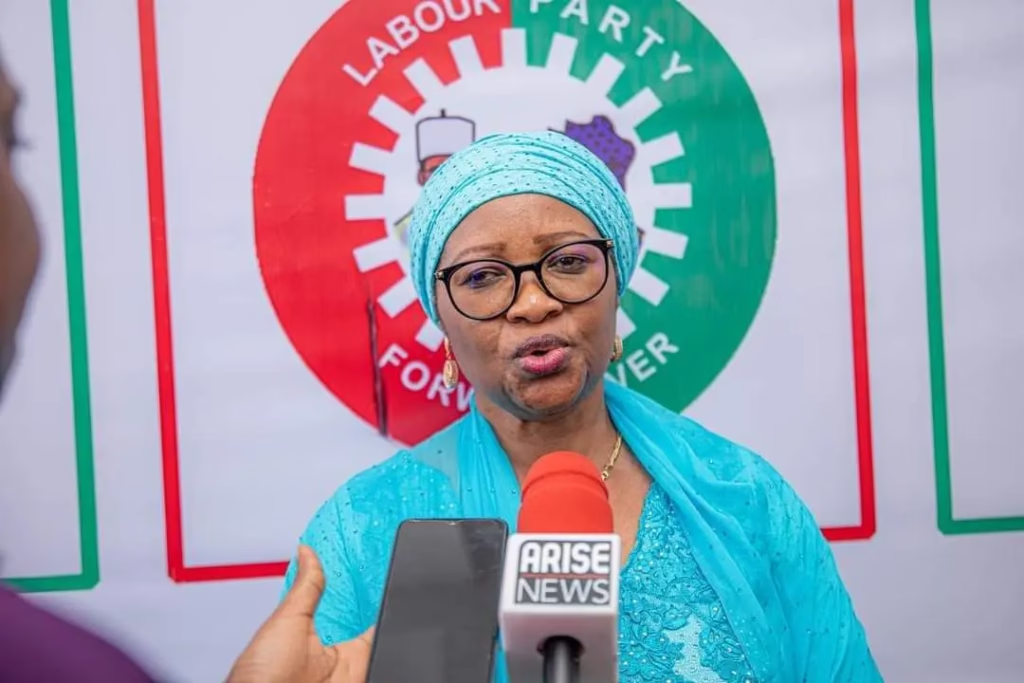The Labour Party’s Julius Abure-led faction has issued an ultimatum to the Nenadi Usman-led faction, demanding the withdrawal of an alleged derogatory statement made against the Independent National Electoral Commission (INEC) and the judiciary.
According to a statement by the faction’s National Publicity Secretary, Obiora Ifoh, the comment made by Nenadi’s media aide, Ken Asogwa, was an attempt to blackmail INEC and its outgoing Acting Chairman, Mrs. May Agbamuche-Mbu. The statement claims that Asogwa’s remark was a clear attempt to discredit the electoral body and its former leader.
The development comes after Nenadi’s faction called for the arrest of Agbamuche-Mbu over alleged criminal collusion with Julius Abure. In response, Ifoh described the action of Nenadi’s aide as an attempt to bring the judiciary into disrepute. He stated that the party views Asogwa’s action as an abuse of privilege and an act that must have consequences.
Ifoh noted that the party has instructed its counsel to write to Asogwa, demanding a retraction of the statement within 72 hours. Failure to do so will result in a petition to the Nigerian Bar Association for describing a valid court order as “fake.” The party views Asogwa’s action as a disservice to the judiciary, particularly from a lawyer who is expected to uphold the integrity of the judicial system.
The Labour Party’s internal conflict has been ongoing, with both factions engaged in a series of allegations and counter-allegations. The current development highlights the deepening rift within the party and the potential consequences of unguarded statements. As the situation unfolds, it remains to be seen how the parties involved will respond to the ultimatum and the potential implications for the party’s internal dynamics.
The demand for a retraction and the potential petition to the Nigerian Bar Association underscore the significance of responsible communication, particularly from individuals in positions of authority or those expected to uphold the integrity of institutions. The development also highlights the importance of respecting the institutions that underpin the country’s democracy, including the judiciary and electoral bodies.
